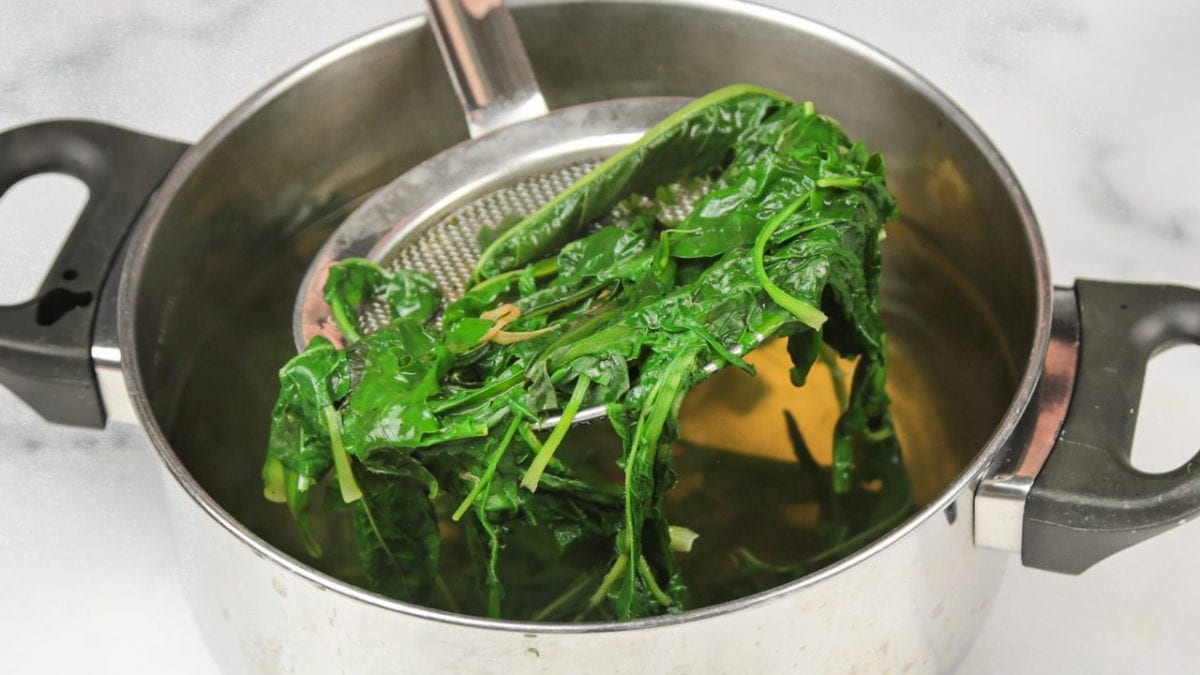
Of all the vegetables, those with a bitter taste are certainly the least loved: not everyone likes to feel their bitter taste in their mouth, which can be predominant as in the case of chicory, arugula and radicchio or can be a secondary note, as for example in the case of escarole. Yet these are the vegetables that are most beneficial of all because they are rich in polyphenols, also responsible for the bitter taste. These are very precious antioxidant substances, because they eliminate free radicals by improving many aspects of your body, including the cardiovascular system and the progression of diseases related to aging. So how can you make these vegetables a little less bitter, so that you can consume them with greater pleasure and frequency? Let's see what the most effective methods are.
How to Remove Bitterness From Chicory
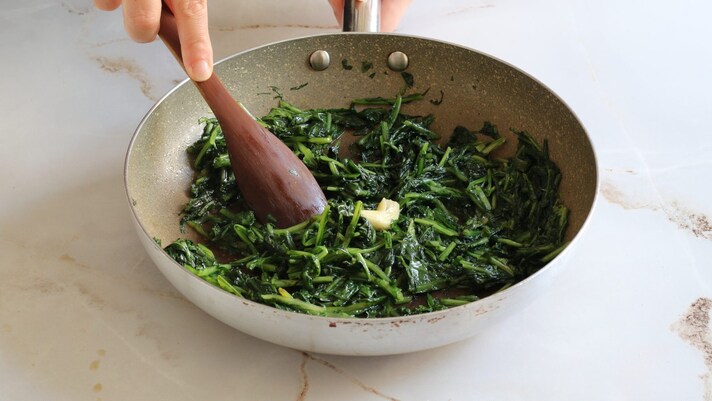
One of the vegetables that creates the most problems in terms of bitterness is chicory: how many times have you given up on cooking it because you didn't know how to tone down this particular characteristic of its flavor? In reality, making chicory less bitter is very easy, all you have to do is add a little baking soda to the water in which you boil it, just the tip of a teaspoon. Alternatively, you can add a peeled potato, beans, lemon or vinegar to the water, all foods that can absorb bitter substances: in all cases, at the end of cooking, you must drain and squeeze the chicory, eliminating as much water as possible, because that is where the bitter flavor extracted from the vegetable is concentrated. Another useful trick is, before cooking, leave the chicory to soak with a little baking soda, or alternatively, after boiling it, you can leave it to rest in a bowl with water and lemon for 15 minutes and then proceed to cook it in one of the many recipes of which it is a tasty base.
How to Remove Bitterness From Radicchio
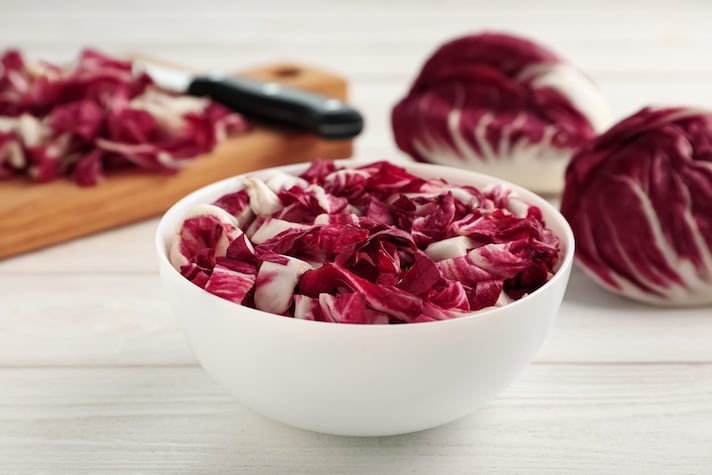
Radicchio is famous for its unmistakable, very bitter flavor, a peculiarity that makes the many recipes in which this vegetable is the protagonist even more unique, starting with the iconic risotto with radicchio and gorgonzola. If you really can't stand its bitterness, you can tone it down both when the radicchio is raw and when the radicchio is cooked, although it would be better to work on the vegetable while it is still raw. In this case, you have to leave it to soak for an hour in a bowl with cold water, white vinegar and lemon juice, then drain it and proceed with the type of cooking you want to do. If, on the other hand, you have already boiled the radicchio, you have to squeeze it very well to eliminate as much water as possible and then let it rest for 15 minutes in a solution of water and lemon juice.
How to Remove Bitterness From Arugula
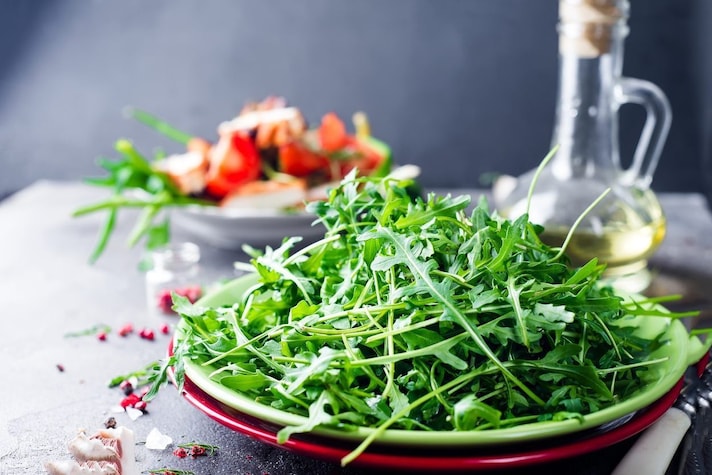
Of all the varieties of salad, arugula is characterized by its particularly bitter taste that remains even after it has been transformed, for example in the famous arugula pesto. If you have to eat it raw, you can tone down the bitter taste a little by leaving it to soak in cold water, ice and lemon juice for about half an hour and then drain it carefully; you can also add some lemon juice as a dressing to amplify the mitigating effect of its acidic component.
If you want to prepare the pesto but make it less bitter, you have several options. First of all, you can add walnuts, hazelnuts, almonds or pistachios to the ingredients to be blended in the desired quantity: dried fruit, with its natural sweetness, can be a valid helper in this sense. Alternatively, you can use cheeses, especially fresh and creamy ones like ricotta or spreadable cheeses, whose delicate sweetness will contrast the strong flavor of the rocket. In all cases, you can also increase the doses of grated cheese and oil so that their aromas envelop the palate to a greater extent than the flavor of the vegetable.
How to Remove Bitterness From Escarole
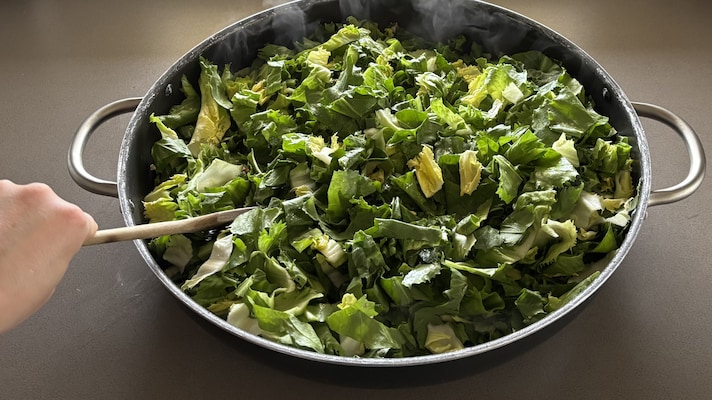
Escarole, compared to the vegetables mentioned so far, has a less strong bitter taste, actually more of a sort of aftertaste. Precisely for this reason, just cooking it is enough to tone down the bitter component, but if you really want to remove it completely because you don't like leaving it immersed in hot water for a couple of minutes and in cold water for another 5 minutes, then proceed with the preparation of the recipe you have chosen: there are so many to prepare with this vegetable . Another effective method is to put it in a bowl and cover it with milk, then leave it to soak for at least an hour and then wash it with cold water before eating it raw or cooked.
How to Remove Bitterness From Eggplants
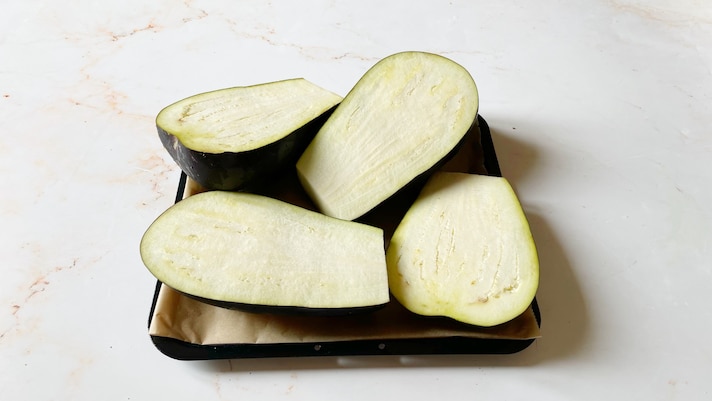
Eggplant is one of the tastiest vegetables there is and one of the most loved for its versatility that allows you to use it in the most varied recipes, from the legendary parmigiana to tasty pasta sauces. Naturally, however, eggplant has a very particular flavor, a little bitter that may not be loved by all palates. To eliminate it, the most common method is to purge them, that is, sprinkle the eggplants with salt after having cut them according to the recipe to follow (for example into slices or cubes), then leave them to rest in a colander for at least 30 minutes: the salt will draw out a fair amount of water containing the bitterness. Then you just need to rinse them quickly, pat them dry and proceed with the chosen preparation. Alternatively, you can also leave the eggplants to soak in water and salt for about half an hour, then at the end squeeze them delicately in order to remove all the liquid.
How to Remove Bitterness From Onions
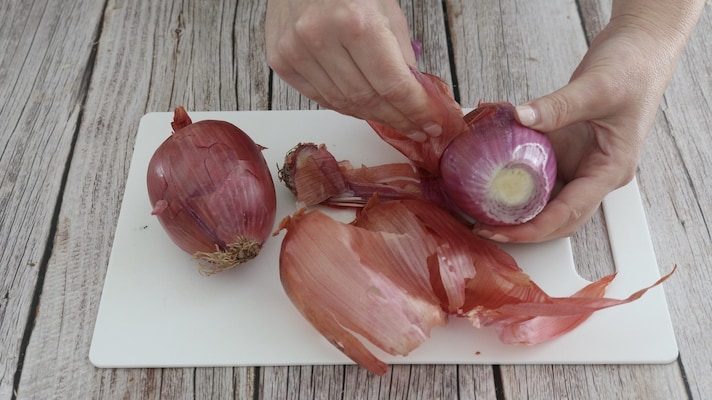
Onions are not naturally bitter, but you may find yourself dealing with a variety that is less sweet and more bitter than others. Sweetening it is very simple: you just have to peel it, leave it to rest for half an hour in a container with warm water and a spoonful of vinegar and then rinse it carefully under cold water. The solution, in addition to making the onion sweeter, will also make it more digestible.
How to Remove Bitterness From Zucchini
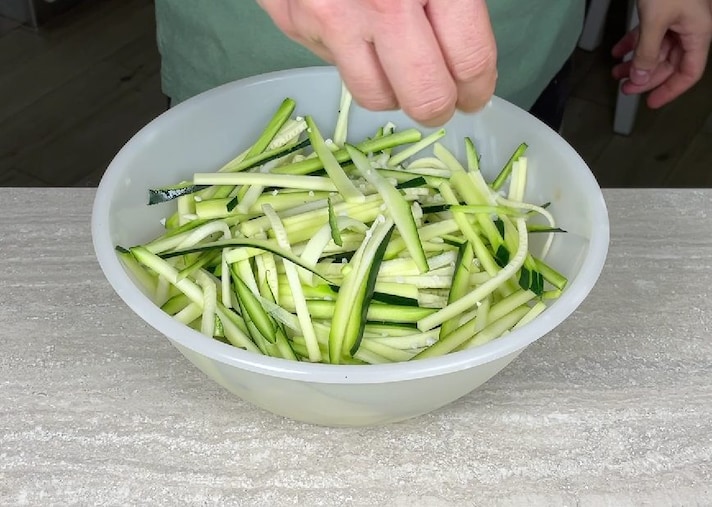
Zucchini are among the sweetest, most delicate and tasty vegetables there are, so why do they appear on this list ? Sometimes you may come across zucchini with a more bitter and pungent taste, due not so much to the vegetable's lack of maturation, but to a substance called cucurbitacin that the zucchini produces naturally if subjected to stressful growth conditions (for example, excessive heat) or to defend itself from parasite attacks. Other causes of the bitter note may be excessively clayey soil, unsuitable for growing zucchini or the beginning of a deterioration process. To avoid having to deal with bitter zucchini you must learn to choose them in the right way when purchasing them, but if despite your care you happen to have more bitter vegetables you can remedy this by cutting them into slices and leaving them to rest for an hour after sprinkling them with coarse salt. In this way they will lose part of the water component and with it the bitter taste.
;Resize,width=767;)
